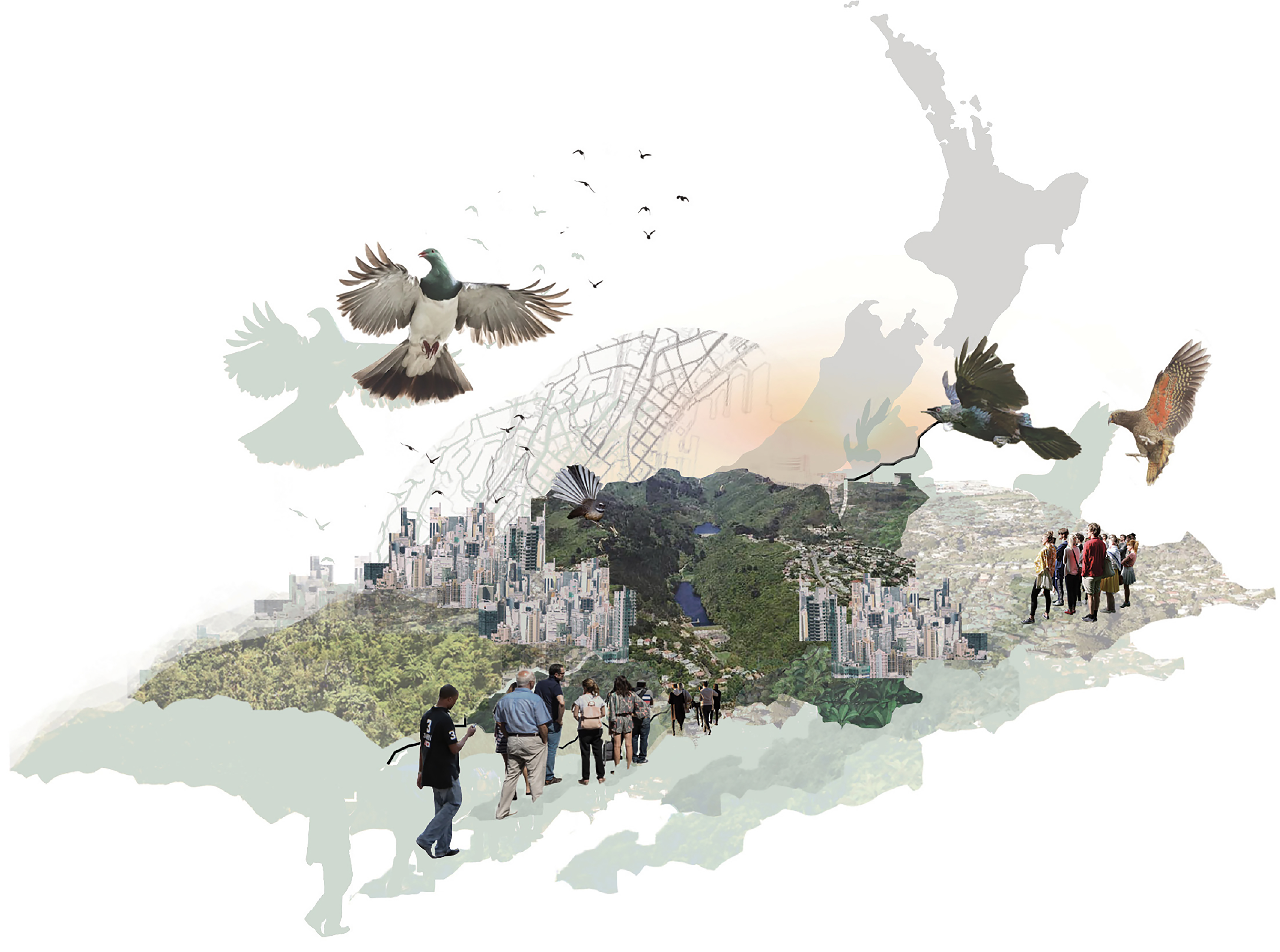
Envisioning Predator Free Miramar. Communities building a refuge for Wellington’s rare and endangered biodiversity.
LAND 593
Victoria University of Wellington
The current worldwide biodiversity crisis requires the exploration of new approaches to habitat conservation. The Predator Free 2050 plan facilitates a shift in the conservation approach traditionally developed in Aotearoa New Zealand, which is mainly focused on the management of nature reserves. In order to achieve a real change in an increasingly urbanised world, conservation efforts must be extended into the urban realm and involve restoration through self-management practices. Miramar, Wellington, has seen strong community efforts to become the first predator free suburb in the country. Its size and defensibility make it a logical starting point across Wellington city. Watts Peninsula, a prominent ecological and historical landmark located on the northern tip of Miramar has been approached for developing design-led research. The research has been oriented towards facilitating the ecological transformation of the area at the same time that social inclusiveness is embraced. A range of small, and strategic spatial interventions have been explored. The intention has been to support the restoration efforts done by local groups of stewards during the last years and design the ecological transformation of the area. The design-led research aims to provide a plan to the local community to drive a 50-year restoration project. Also, to support the efforts done to avoid the urbanisation of Watts peninsula and inform the transformation of the area into a reserve. This project has revived in 2023 as a real project through a design-based partnership between VUW-landscape architecture and the local groups of stewards.
